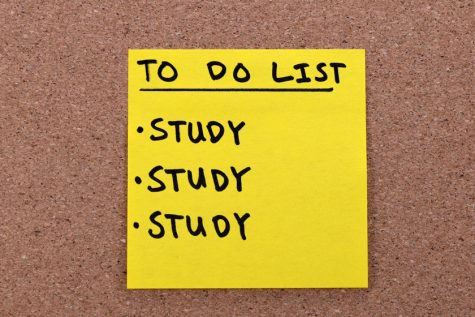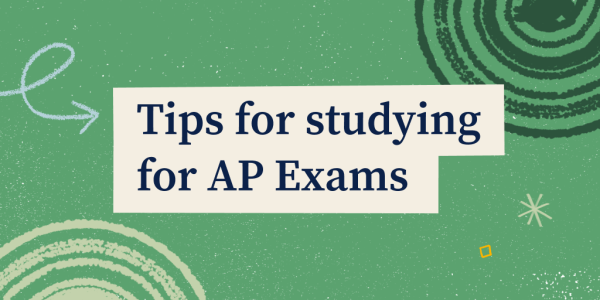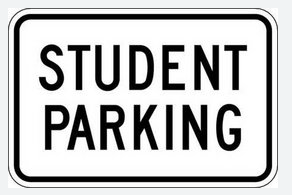Study Tips to Ace Finals

 Whether you wanted it or not, finals week has arrived, drawing the curtains on an invigorating (and fast!) second quarter. For many, finals are a dangerously stressful experience, and an alarming amount of students enter their classroom already worried and doubtful. Similarly, many people believe that studying the content is the only major way to increase the likelihood of a good grade. Here are eight tips, studying-related or otherwise, that will help you come into the test feeling more confident than ever. Avoid solely using the final study guide.
Whether you wanted it or not, finals week has arrived, drawing the curtains on an invigorating (and fast!) second quarter. For many, finals are a dangerously stressful experience, and an alarming amount of students enter their classroom already worried and doubtful. Similarly, many people believe that studying the content is the only major way to increase the likelihood of a good grade. Here are eight tips, studying-related or otherwise, that will help you come into the test feeling more confident than ever. Avoid solely using the final study guide.
1. Prioritizing study time.
By prioritizing your studying, you can provide more foundation to your studying for more difficult classes. Examples include identifying which classes will need the most studying, or which three tests will be on Wednesday, or any categorizing of the material. Having a plan as you study is crucial to staying organized.
2. Using the final study guide as a suggestion.
More often than not, the final study guide is a list of the main concepts of the material. By extending deeper into the subject than just reciting the final study guide, you’ll come out more prepared and confident about the material. Understanding the relationships between key words, main concepts, and summarized ideas will help create a lasting image of the subject in your mind.
3. Make sure to get enough rest before the test.
Resting is extremely important before a test. Instead of late-night or early-morning cramming, which can interfere with your REM and impair your memory of study material, sleeping will help to maintain your reasoning and critical thinking capabilities before the test.
4. Break study immersion.
Studies have shown that focusing on the same topic or subject for too long will not only limit your memory of the subject, but also decrease your interest and focus in the material itself. By switching between topics in segments or allotted time intervals, you’ll learn more, retain information longer, and be more focused in the studying itself.
5. Eat a balanced meal before the test.
Balanced breakfasts are more likely to wake the brain and prepare you for a test than an unbalanced, high-fat and low-carb meal. Test performance is directly linked to the nutritional balance of a meal, so ensure that all, or most, food groups are met before the test.
6. Utilize the Pomodoro Technique.
Study breaks offer a reward for diligent study. For example, by studying intensively for 15 minutes, followed by a 5 minute break, you give yourself time to prepare for the next burst of material as well as feel satisfied with the studied material. Your work will likely be more efficient if there’s a reward after the studying!
7. Predict possible questions on the final exam.
Going over previous testing material from the class helps to understand what kind of questions will be on the final. Practicing answering these types of questions will leave you with more confidence entering the test. The method of crossing out obviously incorrect answers is a rewarding and vital technique for testers, and is a viable option for a final exam.
8. Form associations within the information.
By creating mental pathways between the information and various subjects, you not only grasp a deeper understanding of the material, but are more likely to retain the information. Connecting the information to your own personal experiences, your surroundings, or other portions of the material helps to gain a broader and deeper understanding of the content.
The last week of school, despite the amount of testing, should not be a ridiculously stressful experience. At the very least, these tips should help you to enter ACP with more confidence and retain more information than ever. To all of our talented ACP students, the best of luck on your exams! Study hard and test harder!














